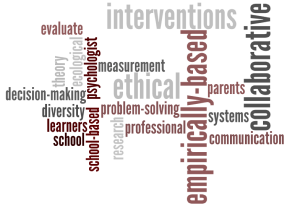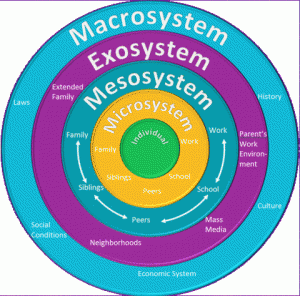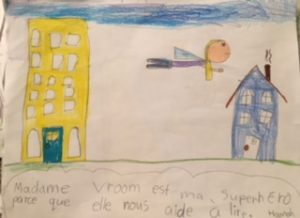
Ideas Central to my Practice of School Psychology
As a school psychologist, I intend to work collaboratively with other professionals as well as families to improve instruction, and enhance student achievement. The collaborative component is essential in the decision-making process in order to make informed, sound recommendations for clients, families and para-professionals. I also hope to maintain treatment integrity by applying empirically-based interventions, bridging the gap between research and practice, to improve student outcomes as well as the effectiveness of program delivery. My previous experience as a classroom teacher for 8 years will help me moving forward in this new profession as it has provided me with an in-depth knowledge and understanding of the education system. It has also provided me with the opportunity to work collaboratively with families, counsellors and administrative staff at the school level. Working as a classroom teacher in a community of students from very diverse backgrounds has also given me the foundational skills necessary to value diversity in development and learning. As a teacher you are also responsible for adhering to the professional standards of conduct. Throughout my career as an educator I have consistently demonstrated that I am able to conduct myself in a professional manner, acting ethically, honestly and with the students best interests in mind. As a teacher trainee, I attended many seminars, interacted with supervisors, attended seminars, completed scholarly assignments and conducted class-related research. While this was extremely valuable experience, I did not have the knowledge and experience working within the classroom, managing behaviour, interacting with parents, assessing progress, implementing interventions, authoring report cards and interacting with diverse learners that I have now gained after eight years of teaching. Throughout my years teaching in the classroom I have worked with many students with development disorders. I now have a wealth of practical experience to apply to my theoretical knowledge gained through the MEd program.
Theories Drawn From and Essential Influences
The Bronfenbrenner ecological systems theory states that there are many different levels of environmental influences that can affect a child’s development. This is an appropriate theory to apply to my current philosophy, as well as my anticipated future practice of school psychology, as it relates to many of the NASP domains of competence. A significant component of the case conceptualization process revolves around the integration of many different environmental factors in the child’s life, ultimately affecting their academic, behavioural, social and emotional development. As Bronfenbrenner’s ecological systems theory demonstrates, conceptualizing a child’s development is a complex process that involves integrating many different pieces of the puzzle to represent the whole child. The ecological systems theory is pertinent throughout all aspects of data-based decision making, consultation, working with families and planning for interventions because the child cannot be understood in isolation, and must instead be considered as part of a greater system. This is why as a school psychologist, you conduct in-depth interviews and extensive file review in order to gain understanding of the child’s functioning within all of his/her different environments and considering all influences.
Attachment Theory and Dr. Bruce Perry
Attachment theory suggests that human infants form an enduring emotional bond with their caretakers (Bowlby, 1977). When the child’s caretakers are responsive to their needs, this emotional bond can provide a lasting sense of security that continues even when the caretaker is not present. Attachment theory is central to my philosophy as a psychologist because it is at the base of all child development as it is one of the first neurobiological processes that is being developed in the infant brain. The positive relationship formed with the primary caregiver is the basis of the ability to regulate. Therefore when working with children who are experiencing behaviour difficulties, it is important for me to understand their needs in an attachment theory context in order to understand how to implement strategies and recommendations for that individual moving forward.
“The proper time to influence the character of a child is about a hundred years before he is born”
– W.R Inge
Furthermore, Dr. Bruce Perry is a key influence to my practice as his views on Attachment Theory directly align with my own. His work is focused on attachment theory in terms of trauma and what kinds strategies to give to children who have experienced significant trauma. Dr. Perry’s theories also align with my views of early intervention and early childhood development. Due to my background as an early primary educator, much of my area of interest is in early intervention and early childhood development. Of particular interest to me is the neurobiological development of young children and how attachment theory relates to dysregulation and behaviour disorders.
Plans for developing or improving my school psychology theory and practice across each domain
In terms of developing my theory and practice, I will continue to review and remain up to date on ethical standards of practice. I will participate in professional development workshops in order to continue to develop my skill set and expand on my areas of expertise. I intend to remain up to date on effective program interventions in order to provide teachers and other educators with appropriate recommendations and review research in order to ensure that I am making the best recommendations available.
My views of how I will impact and contribute to the profession

My intention is to help individuals become increasingly self-aware and responsible for their own learning and improve academic, behavioural and social/emotional success. I also hope to assist teachers and other educators in translating research into practice in order to implement effective instructional practices. As a school psychologist, I aim to develop the attention, problem-solving, and study skills of the students that I work with by understanding. I will work to ensure treatment integrity (the extent to which interventions are implemented correctly) and assist school staff in helping students become increasingly responsible for their own learning (self-regulation and self- assessment). School psychologists should also be prepared to assist teachers and other educators in translating emerging critical research to instructional practice.
Bowlby, J. (1977). The making and breaking of affectional bonds: Aetiology and psychopathology in the light of attachment theory. British Journal of Psychiatry, 130, 201-210.
Bronfenbrenner, U. (1979). The ecology of human development: Experiments by nature and design. Cambridge: Harvard University Press.